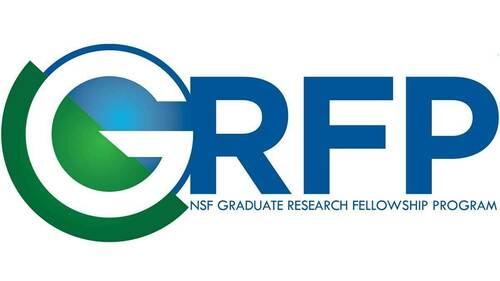
The National Science Foundation (NSF) recently announced the winners of its 2018 Graduate Research Fellowship Program (GRFP), with 12 University of Notre Dame students and alumni winning the highly coveted award from a pool of national competitors. Another 11 received honorable mention. Overall, 23 current or former Notre Dame students earned recognition from the NSF.
Inaugurated in 1952, the NSF GRFP funds graduate studies for scientists and engineers who represent high potential in their fields, focusing on the students’ development in the fields of science, technology, engineering and mathematics (STEM). Specifically, the fellowship provides three years of financial support in the form of $34,000 annual stipends and $12,000 cost-of-education allowances to the fellows’ graduate institutions. It also promotes professional development and provides opportunities for international research.
The application process for the NSF GRFP is extensive. Applicants work in conjunction with their advisers to create compelling personal statements and research plans. In addition, applicants from Notre Dame have the added opportunity to receive strategic expert advice. Notre Dame’s undergraduate students and alumni work with the Flatley Center for Undergraduate Scholarly Engagement (CUSE), and its graduate students work with the fellowship advising team at the Graduate School’s Office of Grants and Fellowships, one of the only full-time fellowship advising offices in the country dedicated exclusively to graduate students. In correspondence to efforts from CUSE and the Office of Grants and Fellowships, the number of awards won by Notre Dame students in recent years has been significant.
“A STEM graduate student at Notre Dame wanting to win a fellowship from the NSF is truly in the right place, as the programming we offer toward application preparation for this award, combined with the students’ work ethics, has proven quite effective,” said Samantha Lee, program director of the Office of Grants and Fellowships. “Students worked tirelessly with faculty and my office for months in advance of the NSF deadline, and it really shows in the quality of their applications.”
Together with her assistant director, Hannah Babbini, and a team of highly trained graduate students who have each won major awards themselves, Lee facilitates a summer grant-writing program, a fall workshop series and an intensive fall break “boot camp,” in addition to one-on-one consultations and group support throughout the year. Similarly, through the efforts of the Paul and Maureen Stefanick Director of CUSE, Jeff Thibert, CUSE provides information sessions and one-on-one application advising for undergraduate and alumni hopefuls.
“CUSE congratulates all of the Domers who received the NSF GRFP this year,” said Thibert. “We encourage all undergraduates who plan to pursue graduate study in science, engineering or social science fields to visit our website and learn more about how we can help you put together a competitive application for this opportunity. We hope to see more undergraduates applying for and receiving the NSF GRFP in the years ahead.”
Laura Carlson, vice president, associate provost and dean of the Graduate School, was equally enthusiastic. “We already know that our students’ research matters. It’s exciting to see that a distinguished organization like the National Science Foundation recognizes this, too. Their financial support directly promotes our STEM students’ research accomplishments, whether these include excavating ancient communities of the past or piloting frameworks for sustainable infrastructure for our future.”
Undergraduate students interested in applying for the NSF’s graduate research fellowship should visit the NSF GRFP page on the CUSE website. Graduate students interested in winning this fellowship or other external awards should contact the Office of Grants and Fellowships at gradgrants@nd.edu.
The 12 NSF GRFP awardees are:
Karen Angeles, civil engineering
Caitlyn Booms, mathematics
Tanner Corrado, chemical engineering
Michael Foley, physics and mathematics
Tesia Janicki, chemistry and physics
Carlisia McCord, anthropology and Arabic
Lillian McGill, environmental sciences and applied and computational mathematics and statistics
Joseph Ong, chemistry and Chinese
Stephanie Prince, biochemistry and French
Paul Rudnicki, chemical engineering
Thomas Sherman, civil and environmental engineering and earth sciences
Audrey Taylor, civil and environmental engineering and earth sciences
The 11 honorable mentions are:
Daniel Barabasi, physics
Brittni Bertolet, biological sciences
Danielle Boley, biochemistry
Taylor Gambon, mechanical engineering
Austin Hickman, electrical engineering
Monica McFadden, civil and environmental engineering and earth sciences
Thomas Parsons, biochemistry and applied and computational mathematics and statistics
Ana Pervan, mechanical engineering
Megan Petti, chemistry
Hari Rau-Murthy, mathematics
Lauren Trichtinger, psychology